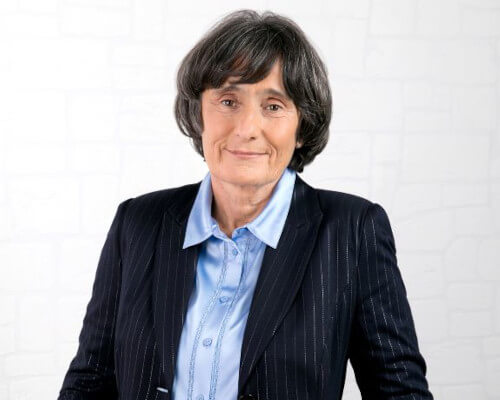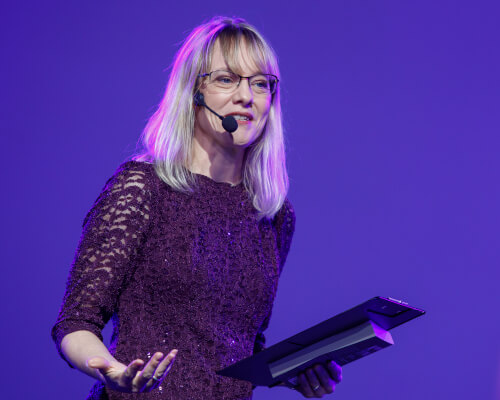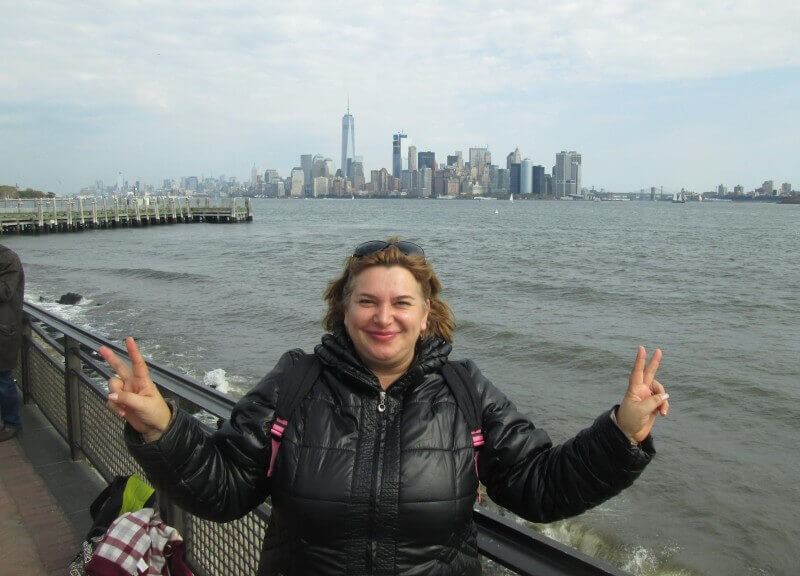
In the fall of 2016, Antoaneta Hristova spent a few weeks in New York City attending an America for Bulgaria Foundation training program for principals. The experience included peer learning and school visits for Antoaneta and her colleagues, leaders of schools from across Bulgaria. Engaging with students at these schools also produced interesting food for thought. Particularly intriguing was the response students gave to one of the Bulgarian group’s more provocative questions: “What was your most boring class today?”
“They didn’t understand our question,” says an incredulous Antoaneta, who was then acting principal of Anton Strashimirov Primary and Middle School in Burgas. “So, I said to myself, ‘If we manage to achieve this at our school, I would be happy.’”
Today Anton Strashimirov is a successful school by any measure. It is the top ranked school in mathematics and Bulgarian language among non-specialized schools in the Burgas region, according to the national external assessment results after seventh grade. It is also the top choice for parents seeking first grade admission for their preschoolers. Moreover, for its successful use of innovative educational practices, the institution earned Innovative School status in 2018.
Antoaneta believes that the true measure of the school’s success is elsewhere — in the happy, engaged students, inspired teachers, and capable alumni, who maintain their relationship with the school long after graduation. This is obvious to visitors: walk the school’s hallways, talk to its students, educators, and graduates, and you won’t fail to notice the special spirit of the place!
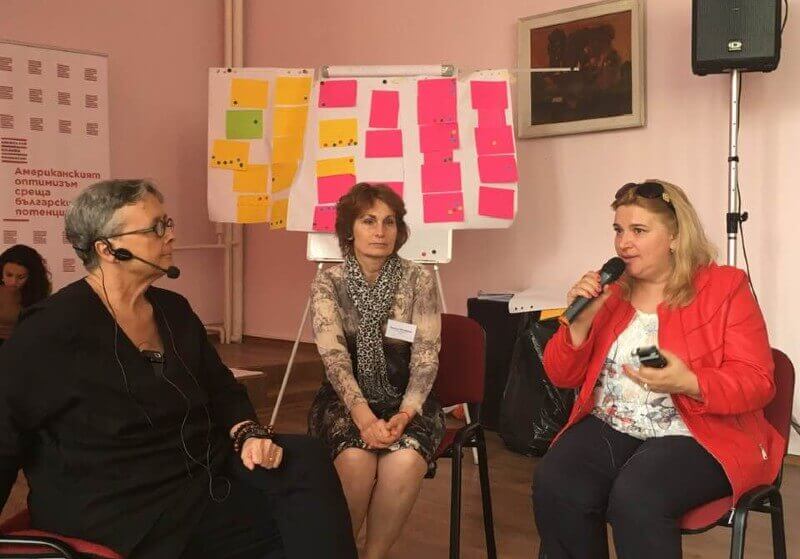
Antoaneta likes to say that success is built over time by a team of partners — a category that she says includes teachers and school leaders as well as students and their parents. She constantly seeks dialogue with and feedback from each of these groups because she believes that a true leader must listen and be empathetic to others. She always strives to persuade with arguments and never imposes predetermined solutions. “Whatever you try to achieve, you will gain partners when you can convince them that the benefits are for everyone,” she says. It is this approach, applied consistently over the last decade, that has contributed to Anton Strashimirov School’s success.
Her first lessons in empathetic leadership came from her parents, a schoolteacher and a university professor. Later, life had its own empathy teaching to do. Biochemist by education, Antoaneta first dreamed of working in a lab and doing genetic research. But “a series of happy coincidences” took her to the classroom — a much better platform for her gregarious, optimistic nature and natural leadership skills.
Antoaneta became a teacher during a difficult time. The 2000s were a time of digitalization, of the “explosion” of information and communication technologies, and of dynamic social changes. Only education reform has lagged behind.
“The paradox of digital children being taught by ‘analog’ teachers must be resolved. There is no way for kids to become ‘analog.’ Teachers need to change,” Antoaneta says. She underscores that “we are not talking about treating digital teaching techniques and technologies as absolutes, nor do we want to dummy down education to simple entertainment. The learning experience should be associated with positive attitudes and positive teachers — leaders who set an example, who show the way, who don’t just talk. And then there should be support for each child and for each teacher. Only this way can we build an educational community.”
“I love my job, and I love communicating with people. When I took over at the school in 2016 [as acting principal, ed.], the first thing that needed improving was communication,” Antoaneta says. “Building a culture of communication is the thing to start from if you are to build a successful school. I mean not only communication between teachers and between teachers and the school leadership, but between teachers and parents and between all of them and the children.”
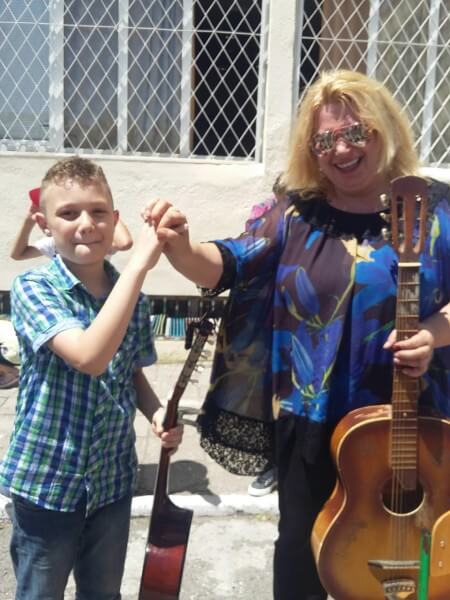 Over the years, Antoaneta has participated in a number of trainings that helped her develop her ideas about the role of the educational community and the leader’s place in it. In the programs of ABF’s Education Leadership Academy, she involved members of her team as well, and little by little the partnerships she nurtured started bearing fruit. In the spring of 2018, Anton Strashimirov School hosted a Foundation-supported training for progressive educational practices and impressed the program’s US partners from Bank Street College with some of the innovations they had achieved in their classrooms. Second and third graders demonstrated how well they understood the connections between textbook content and the real world — connections that they had established themselves through experiential learning in the school’s early career guidance program.
Over the years, Antoaneta has participated in a number of trainings that helped her develop her ideas about the role of the educational community and the leader’s place in it. In the programs of ABF’s Education Leadership Academy, she involved members of her team as well, and little by little the partnerships she nurtured started bearing fruit. In the spring of 2018, Anton Strashimirov School hosted a Foundation-supported training for progressive educational practices and impressed the program’s US partners from Bank Street College with some of the innovations they had achieved in their classrooms. Second and third graders demonstrated how well they understood the connections between textbook content and the real world — connections that they had established themselves through experiential learning in the school’s early career guidance program.
Learning through direct experience has improved their academic performance as well, as demonstrated by external assessment outcomes. “More importantly, they come out with good skills,” Antoaneta says. “This makes them extremely adaptable. It makes them feel that they can handle the lives that await them. Our mission is to help students become confident individuals who are capable of managing their education and life further.”
Getting there requires patience, continuous dialogue, and supportive leaders — individuals with broad shoulders that enable others to thrive. Individuals like Antoaneta, who is not afraid to take a step back if that’s what it takes to support someone effectively. That is why, after four years in the top job at the school, she decided not to run for reappointment in 2019. She passed the baton to a new person in order to dedicate herself to what she does best — improving communication between educators, students, and parents and building a strong school community. Today, as deputy principal for education, she continues to create successful partnerships and inspire others to be the best versions of themselves.
As a mentor in ABF programs in education, Antoaneta has supported the work of colleagues from other schools as well because she believes that education is a cause that transcends the boundaries of a single school. “For me, sharing is caring; it’s an important value. Share whatever you know with others because this way everyone gets better,” she says. She is proud to have been a part of the creation and development of a national community of partners working together to further the cause of education.
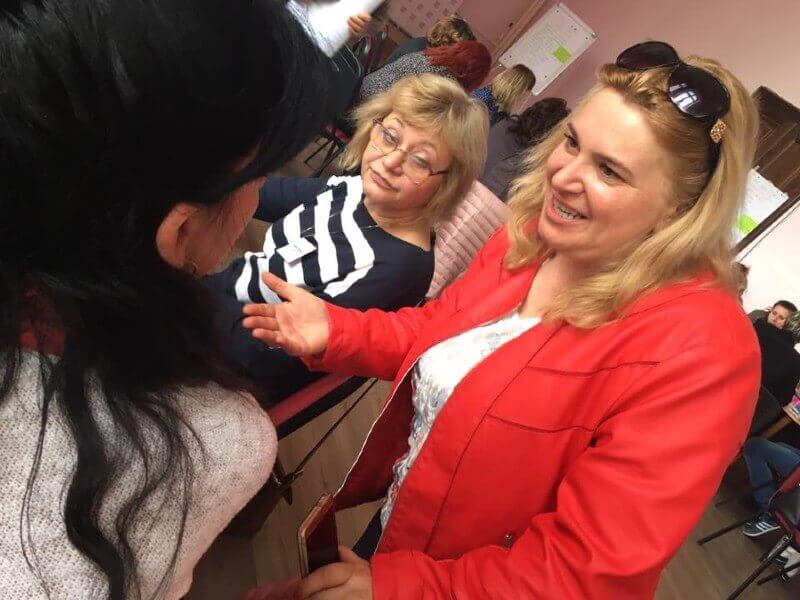
“In Bulgaria we already have a community that is educating kids for the future,” she said. “I’m not talking about academic results, about subjects being taught. I am talking about relationship building, about communication, about a vision for one’s usefulness in the future. Everyone will contribute the most to society if they feel that they have found their place, if they are confident that they can be useful.” This, after all, is the ultimate goal of education.
Antoaneta and her colleagues’ job is to ensure that students find what they are good at and apply their talents for the benefit of society — and that there are no boring classes at school! This way, lessons “stick” long after graduation, and graduates feel empowered to brave any challenge, personal or professional.
A few years ago, Antoaneta met a former student, now a grown man in his 30s, who instead of shaking her outstretched hand kissed it — a somewhat analog gesture, but unambiguous about what it expressed: respect and gratitude and a touch of nostalgia. He was a father now, he told his former teacher, and although his education had helped him make a successful life for himself in the capital, Sofia, he dreamed of going back to his native Burgas and of having his son study “at my school, with my teachers.”
What better evidence of success than that?
